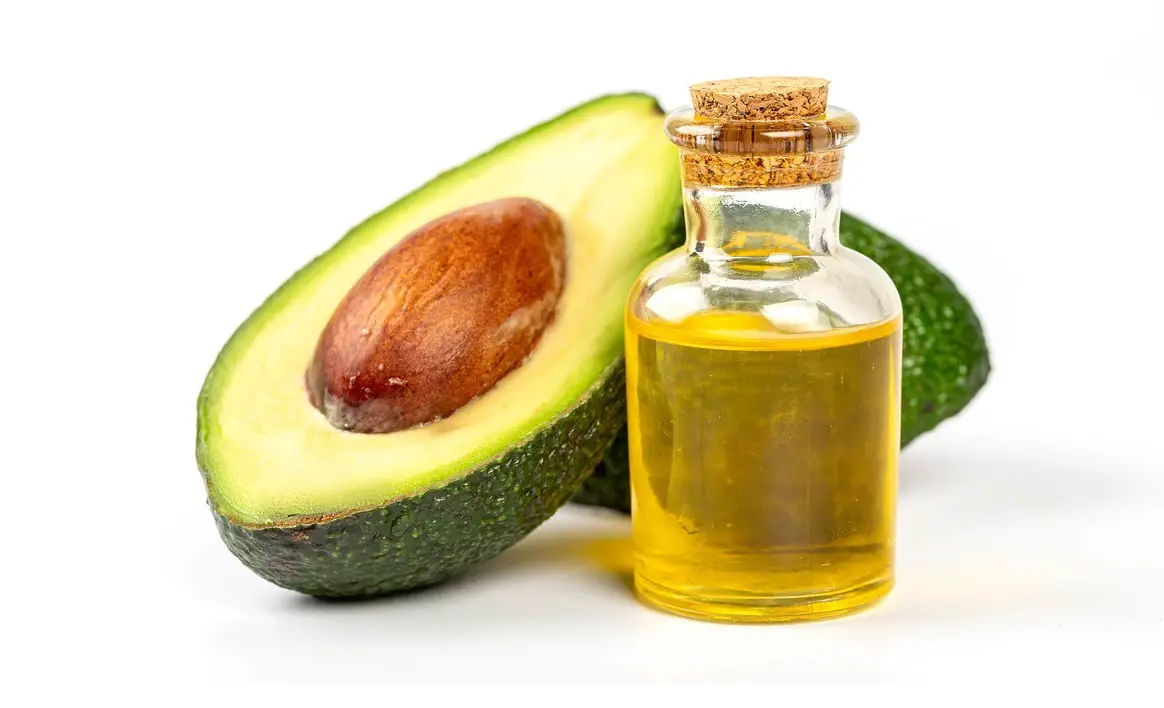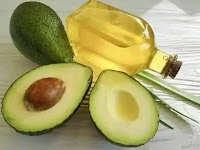Does Avocado Oil Darken Skin? The Bare Truth

In recent years has been known as a popular anti-inflammatory and skin-lightening oil but some people argue it may darken the skin. How true is this assertion? We will find out in this article.
It is also a popular ingredient in many beauty products despite the worry that it darkens the skin. It is beneficial to the skin due to the high levels of monounsaturated fats and vitamin E in it.
Does avocado oil darken skin?
Despite limited research available on this topic, a greater portion of skin experts says it doesn’t darken the skin and is safe to use. This may not be far-fetched, especially with all the features we described earlier in the previous article on how avocado oil lightens skin.
There are a number of oils that make skin darker like coconut oil, sunflower oil, and olive oil but Avocado isn’t one of them.

Is the oil good for the skin?
Yes, it is good for the skin due to its hydrating and regenerative properties. Used alone it can serve as a moisturizer or combined with other creams and lotions.
It effectively treats sunburns and many other skin irritations.
Can it be used for fair skin?
Fair skin individuals can use it on their skin to have a brighter and better complexion. It benefits the skin in a number of ways and doesn’t darken it. So feel free to use it if you are fair-skinned.
Is it good for the lips?
There is no straightforward answer to this question as everyone’s lips differ. However, it is a natural lip balm due to its hydrating and nourishing actions.
Monounsaturated fats in them help keep lips soft, succulent, and well moisturized. Also, it is a good source of A, B, D, and E Vitamins, which can contribute to healthy lips, just as you love it.
To use as a lip balm; apply a small amount to your lips to see how it truly feels. If you’re okay with then continue using it onwards.
Good for under the eyes?
The answer is yes! As a natural moisturizer, it can help reduce fine lines and wrinkles that appear under your eyes. Also, vitamin E in it improves the elasticity of the skin giving you a more beautiful and youthful appeal.
Does it help with acne/pimple treatment?
It can help treat pimples which is the after-effect of the fatty acids in it that moisturize the skin and reduce inflammation. Additionally, the antioxidants in them also protect the skin from sun damage and other factors that predispose it to acne.
Does it help in hyperpigmentation?
What is hyperpigmentation?
Hyperpigmentation is a skin condition characterized by dark patches that form on the skin. These patches are caused by a surge in melanin, which is the pigment that gives skin its characteristic color.
Melanin production:
They get formed in cells called melanocytes which are present in the outermost layer of the skin (epidermis). They get formed after stimulation from the sun’s UV light.
This explains why those who are constantly exposed to sunlight get darker skin from an overproduction of melanin for example those in sub-Saharan Africa. This melanin production is an adaptive mechanism to protect the body from the further effects of UV light.
Causes of hyperpigmentation:
The most common causes of this condition are sun exposure as we rightly explained above. This is more evident in areas of the body that is constantly exposed to sunlight like the face.
Surges in hormones can also trigger this condition as we see in pregnant women and those on contraceptive pills.
Additionally, some medications may predispose you to this condition like the use of certain antipsychotics and anti-inflammatory drugs.
What are the treatment options?
Various methods are available for treating hyperpigmentation including laser treatment, topical treatments, and chemical peels. They are proven topical treatments that can help.
Does Avocado brighten or lighten skin?
If you want the perfect oil to help with your skin complexion then this might be a deal. Applying it to your skin will brighten dull skin and give you that beautiful glow you always desired. It is also known to even skin tones and lighten dark spots.
The possible explanations are due to the rich supply of vitamins A,D, E, and oleic acid in it that helps keep the skin healthy, and hydrated with improved circulation and reduced inflammation.
Also, the antioxidants in it offer protection against ultraviolet radiation that darkens the skin from too much production of the brown pigment.
How to use avocado to lighten skin
It can be added to your bathtub filled with warm water or applied directly to the skin or applied directly to the face and neck rubbing in a circular fashion. this is left for about 20 minutes before rinsing with warm water.
Also, it can be used in combination with your regular foundation or moisturizer to lighten the tone of your skin.
What does it do to the skin?
This rich green vegetable oil is a rich has many benefits for the skin like repair, protection, and moisturizing. It offers healing for dry cracked skin.
It reduces wrinkles appearance and other aging signs as well as handles psoriasis, eczema, and repair damaged skin.
Also, it is even able to reduce hyperpigmentation caused by Ultra Violet radiation exposure just like we discussed above. This benefit on the skin is due to the rich supply of antioxidants in it.
How it is produced?
It is obtained from the butter-green-colored avocado fruit, which is often eaten as part of a sandwich or salad. It has many uses, including cooking, skincare, and hair care.
The oil can be extracted using a cold press or by using a solvent to extract it. the former gives a purer form of the oil.
What kind of avocado oil is best for the skin?
When it comes to finding the best for your skin, there are a few things you’ll want to consider.
The first is the type, there are two main types: cold-pressed and refined. Cold-pressed is considered the best for skin care because it’s less processed and contains more nutrients while the refined type is lower in quality but may be better for cooking.
The second thing you’ll want to consider is the brand oil. Not all oils are created equal, and some brands are known for their high-quality products. Do your research to find one that’s made with pure, unrefined ingredients.
Avocado compared to other Skin Oils
1. Avocado vs Coconut Oil
Skincare lovers have many different oils to choose from. Some of the most popular oils are avocado and coconut oil. So, which one is better for your skin health? To answer this, you need to consider a few things
First, avocado is a great choice for persons with dry skin, as it moisturizes the skin while coconut oil is good at moisturizing the skin, and is also very effective at combating acne.
Another consideration is the texture of these two oils. Avocado is a little bit thicker than coconut, so it is a better choice for people with oily skin. The latter is thinner and is a better choice for dry skin individuals.
Both oils have their merits so it all depends on what you desire in your essential skincare oil.
2. Avocado Vs Olive Oil
Both oils benefit the skin in different ways. The former has monounsaturated fatty acids that are beneficial for skin health. These fatty acids keep the skin hydrated and reduce the risk of wrinkles.
It is also rich in antioxidants, that help protect the skin from damage caused by free radicals and reduce the risk of cancer.
Olive oil is also a good source of monounsaturated fatty acids and polyunsaturated fatty acids. These fatty acids hydrate the skin and reduce the risk of wrinkles. It is also rich in antioxidants, which protect the skin from damage caused by free radicals in the environment.
The better option will depend on your body’s needs, those with dry and sensitive skin will do better on avocado.
3. Avocado vs Almond Oil
Almond oil is a light, non-greasy oil that is easily absorbed by the skin. It is high in vitamin E, which makes it beneficial for treating dry skin and preventing wrinkles. It is also anti-inflammatory and can help reduce redness and irritation.
The former is also a light, non-greasy oil that is easily absorbed by the skin. It is high in vitamin E and has anti-inflammatory properties as well as rich in healthy fatty acids, which make it beneficial for treating dry skin and premature aging.
Individuals with dry or damaged skin will benefit more from using the former than the latter.
Side effects:
Despite the number of health benefits just like all types of oils, it has some potential unwanted effects that you should be aware of.
Some people who consume it may experience nausea and vomiting. Others have reported problems with their digestive system, such as diarrhea and constipation.
Additionally, consuming high amounts can lead to weight gain, as it is high in calories.
On the skin, it can cause minor irritations and allergies if you react to the ingredients in it. This is commoner in those with allergies to latex.
In those with acne-prone or oily skin, it can cause clogging of pores and breakouts.
One potential untoward effect is contact dermatitis. A skin reaction that can occur when the skin is in contact with an allergen or irritant. Symptoms include redness, itching, and swelling. It can be treated with over-the-counter (OTC) medications or by seeing a doctor.
Does it worsen acne?
It is not known to worsen acne rather its ant-inflammatory function can help in resolving the inflammatory response that is involved in acne.
Conclusion:
It is a natural oil that moisturizes and protects the skin. It is also non-comedogenic and most importantly does not darken the skin. It can be used on fair or dull skin to improve complexion and skin tone.



